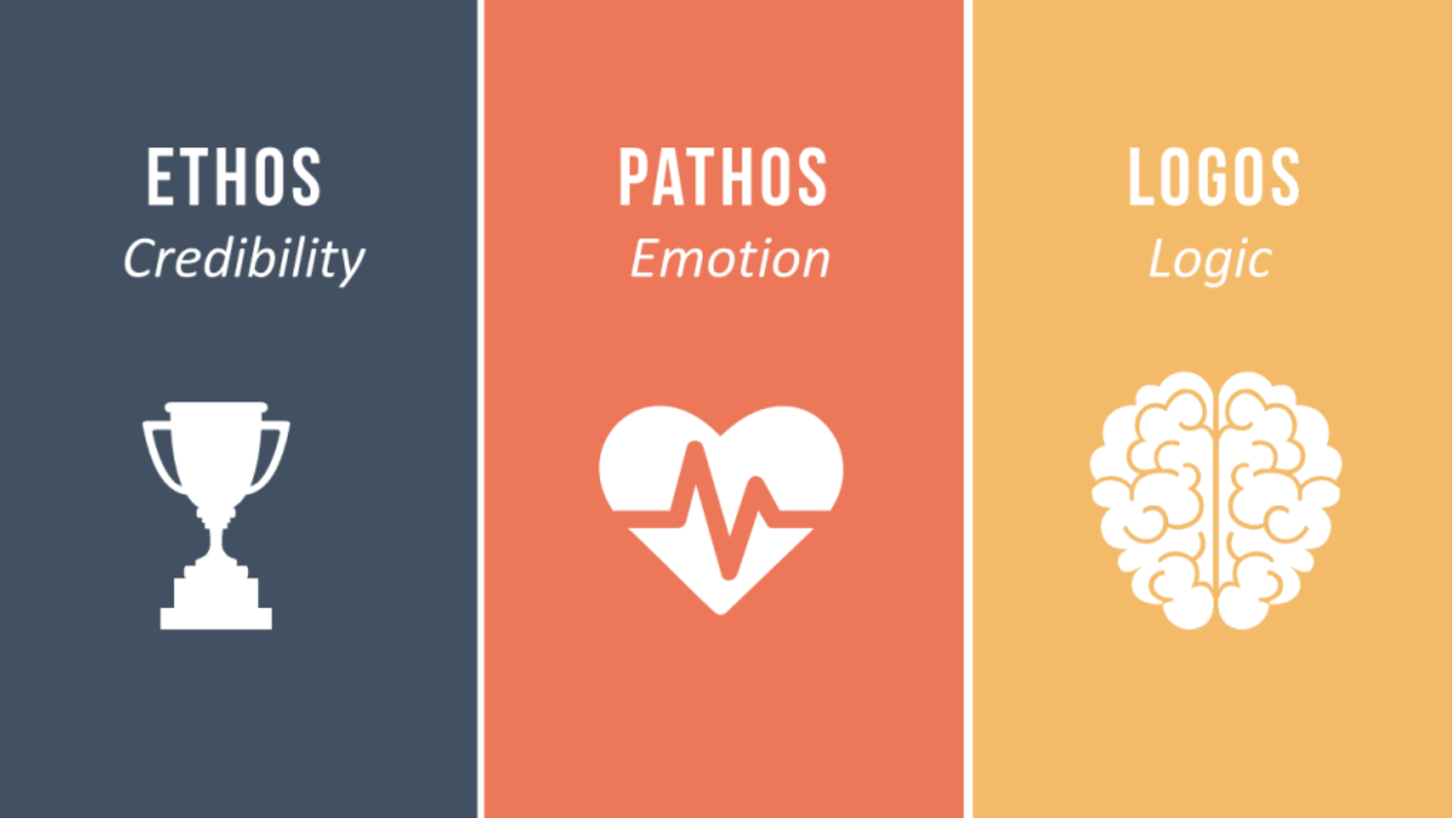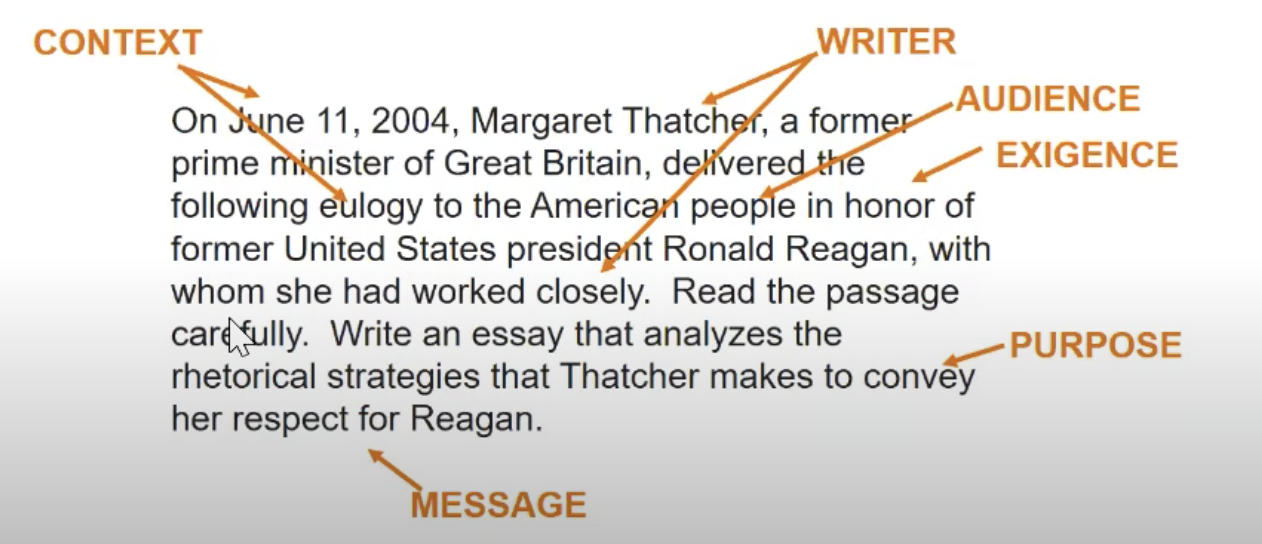
Aiming to score a 4 or 5 in the AP English Language and Composition Exam 2021? We’ve got you covered. In this quick read, we’ll take you through the top 7 concepts that will help you crack the AP English and Composition Exam 2021.
All About The AP English Language and Composition Exam Format
The 3 hours and 15 minutes long exam will test you on broadly two different sections:
Multiple Choice Section – will make up 45% of your score
- 45 questions in 1 hour
- Includes 5 sets of questions:
- 23–25 reading questions that will ask you to read and analyze non-fiction texts
- 20–22 writing questions that will ask you to “read like a writer” and consider revisions to stimulus texts
Free-Response Section – will make up 55% of your score
- 2 hours and 15 minutes for 3 questions
- In this section, you will write essays for 3 free-response prompts from the following categories:
- Synthesis Question: compose an argument that combines and cites at least 3 of the sources to support your thesis
- Rhetorical Analysis: analyze how the writer’s language choices contribute to the intended meaning and purpose of the text
- Argument: create an evidence-based argument that responds to a given topic
Note that the exam remains the same whether you choose paper or the computer. You will not be allowed to revisit previously answered questions in the digital version.
Also read AP Exams 2021: Key Changes, Prep Strategy and More!
Now, to get a perfect 5 or even a 4 in the AP English, it’s critical for you to learn and extract the maximum out of the 7 concepts and tricks listed below:
1. Educated guesses about unfamiliar words
We agree that it’s practically impossible for even the brightest ones to know and remember all words! But it is also true that sometimes unfamiliar words can impact the way we perceive and process the facts presented to us. The MCQs and the FRQs can both present to you the challenge of facing new words. In such a scenario making an educated guess and trying to see the overall context can help.
Consider an example from the Princeton Review,
“The speaker’s passion and ebullience began to cut through the cold and unfriendly mood of the audience.”
A lot of us might not know the meaning of the word ‘ebullience’ here, for example. But despite not knowing it, here’s how you can crack the ‘possible meaning’ of it, step-by-step:
- The sentence is presenting a contrast – the speaker was passionate and the audience’s mood was unfriendly
- The word ‘passion’ when used for a speaker can be used with supplementing words like energy, excitement, enthusiasm, happiness, conviction, etc.
- It’s likely that ‘ebullience’ also refers to something close to this since it’s used with a preceding ‘AND’ and not words like ‘although, and a bit of, etc.’ which might indicate a contrast with ‘passion’
- Ebullience indeed means being full of energy and enthusiasm!
2. Rhetoric appeals and language style
You must know the rhetorical devices, persuasive devices, and stylistic devices. A lot of questions in the MCQ section can be around the tone, theme, style, denotation, connotations, etc. Familiarize yourself with the terms, their definitions, and a good number of usage examples.
For a start, you must know the RHETORICAL TRIANGLE – subject, speaker, and audience. You must also know the 3 classical rhetorical appeals. The three appeals most commonly used by writers to generate different impacts on their readers:

- Logos, an appeal to logic – often by providing statistics, facts, etc. For example, “History has shown time and again that absolute power corrupts absolutely.”
- Pathos, an appeal to emotion – often by drawing out feelings like pity, anger, etc. For example, “I’m not just invested in this community – I love every building, every business, every hard-working member of this town.”
- Ethos, an appeal to ethics – often by demonstrating expertise or pedigree. For example, “As a doctor, I am qualified to tell you that this course of treatment is the best for your ailment.”
3. Reading recce – get it right with practice
Heard about reading between the lines? There’s a lot of difference between reading for leisure and reading critically. As an AP English Language & Composition Exam 2021 aspirant, you must do your recce of the text presented in a smart way. Start with these 3 steps to save time, read without missing out on information, and derive systematic inferences:
- Break down the text you’re reading into smaller sub-headings viz main idea, main argument, substantiating examples, conclusion, etc.
- Avoid stunting between questions and the text. Making an outline of the text and reading it carefully in one go should be your strategy
- Don’t look at words or phrases in isolation. Read them in context (for example, “Mike’s feeling burnt out” implies that Mike is feeling exhausted. It does not imply the literal meaning of ‘being burnt by fire’)
Remember that you must not read to find answers outright. Read to comprehend and evaluate the idea and conclusion(s) presented.
4. Literary & rhetorical devices and terms
Strengthen your vocabulary and knowledge of literary devices and figurative language. From hyperboles to idioms and to similes & metaphors, you’ll encounter many of them in the AP English Language & Composition Exam. Start with these TWO great resources right away:
- AP English Language Vocabulary on Quizlet.com
- AP English Language Terms on Vocabulary.com
- Mega List of 40 Rhetorical Devices on Fiveable.com
5. Annotations for rhetorical situations
You can understand what we mean by annotations by simply looking at the picture below. Use annotations while dealing with a rhetorical situation in a free-response question. This will help you structure your thoughts and approach the questions in a fail-proof way.

- Write the main idea (in margins if you’re taking the exam on paper)
- Underline and study the keylines in the text
- Look for the rhetorical situation
- Chunk the passage/ identify the changes or shifts and mark the key topics (see the picture below)
6. The Argument Essay Checklist
In the argument essay, you’ll be asked to argue your position based on your own knowledge and experience. The idea here is to test you on the robustness of your ideas, the structure of your essay, and the supporting facts and ideas used to justify your position or argument. Here is a quick 3 step checklist to get this section right:
- Take a clear stance – make your position clear and don’t use terms like ‘it depends’ or ‘maybe’
- Use evidence – support your argument with facts and your experience(s) wherever possible. Also, provide a commentary on HOW exactly do the pieces of evidence support your argument
- Avoid repeating lines or ideas. Make sure that your essay moves forward in a systematic way with EACH line
7. Bonus tip: Know how and where to ask for help!
There are a ton of practice resources available for free on the internet. We highly recommend that you go through the video lectures uploaded on the Advanced Placement official YouTube channel. AP students can begin using AP Classroom resources immediately and from anywhere — from any phone, tablet, or computer with an internet connection — using their College Board usernames and passwords. For additional practice, you can buy the AP English Language and Composition Study Guide with Practice Test Questions.
If you require personalized help, get a professional AP English tutor on board with you. A professional AP English tutor can not only help you clear all your learning blocks but also:
- Brings in a study routine and a balanced approach that covers all topics equally
- Gives constructive feedback and works with you for your specific learning needs
- Devises and helps you act on a learning and scoring strategy that’s customized just for you
- Gives 1:1 attention and time while bringing in all the professional expertise
Read more of our featured test prep-related posts here. From the ACT to the SAT and to the AP Exams and more, we’ve got you covered at Talentnook!
Start your AP English tutor exploration journey with Talentnook. Browsing through hundreds of AP English tutors offering private online lessons. Request for demo lessons, go through the qualification details, and speak to our experts for any concerns before selecting a tutor that fits your learning needs, schedule and budget perfectly!
Connect with a private AP English tutor, ACT English tutors, and ACT Reading tutors on Talentnook.